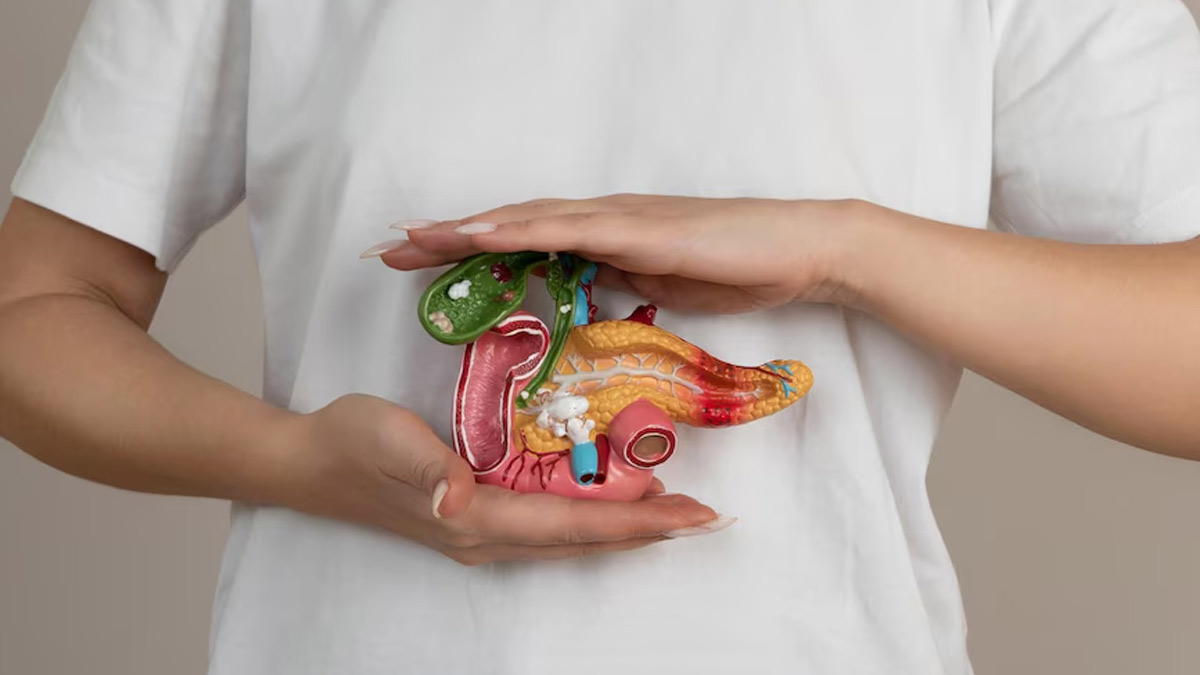
Pancreatic cancer is a type of cancer that occurs in the pancreas, an organ located deep within the belly, behind the stomach. This tiny organ not only produces enzymes that aid in digestion but also makes the hormone insulin, which helps regulate blood sugar levels.
Table of Content:-
According to the World Cancer Research Fund International, pancreatic cancer is the 12th most common cancer worldwide. It occurs when cells in the pancreas begin to grow uncontrollably, forming a tumour. Despite progress in cancer diagnosis and treatment, early detection of pancreatic cancer still remains a challenge. Many continue to be unaware of the benefits of regular screening, while many others give into the misconceptions circulating about the disease. Therefore, we spoke to leading experts to debunk common myths around pancreatic cancer.
Also Read: Warning Signs Your Pancreas Is Struggling: Important Tests To Take
Myth 1: Pancreatic Cancer Shows No Symptoms Until Late Stage.

In an interaction with the OnlyMyHealth team, Dr Bharath G, Consultant-Surgical Oncology, Fortis Hospital, Nagarbhavi, said that pancreatic cancer may show little to no symptoms in the early stages. However, that is not always the case, he noted.
According to the doctor, there can be some warning signs, including:
- Jaundice (yellowing of the skin or eyes)
- Dark urine
- Light-coloured stool
- Upper abdominal pain radiating to the back
- Unexplained weight loss
However, it is important to understand that these symptoms do not necessarily mean pancreatic cancer and can also be caused by other non-life-threatening conditions.
Myth 2: Pancreatic Cancer Only Affects Old People.
According to Johns Hopkins Medicine, most cases of pancreatic cancer develop between the ages of 60 and 80. However, this does not mean that younger individuals are at no risk. Dr Bharat Prajapati, Consultant - GI and HPB Surgical Oncology, HCG Cancer Centre, Ahmedabad, said, "Lifestyle factors and genetic predispositions can influence the risk in people under 50."
Myth 3: Pancreatic Cancer Is Always Fatal.

Pancreatic cancer has a high mortality rate. This is because the disease often shows little to no symptoms in the early stages, leading to delayed diagnosis and the spread of the tumour to other parts of the body, which adds to the complications.
However, Dr Prajapati suggested that advancements in medical research and treatments have improved survival rates. In fact, the 5-year relative survival rate for localised pancreatic cancer is 44.0%, according to the National Cancer Institute (NCI), which adds that the earlier pancreatic cancer is caught, the better chance a person has of surviving five years after being diagnosed.
Myth 4: Only People With A Family History Are At Risk.
Although having a family history of pancreatic cancer can increase the risk, most cases occur in people without any family history, highlighted Dr Prajapati.
He said, “Factors such as age, smoking, obesity, and certain genetic mutations also play a role in contributing to pancreatic cancer risk.”
Also Read: Pancreatic Cancer: How To Know If The Cancer Has Spread?
Myth 5: You Can Do Nothing To Reduce Pancreatic Cancer Risk.

While there is no sure-shot way to prevent pancreatic cancer, lifestyle changes, such as maintaining a healthy weight, quitting smoking, and managing diabetes, can help reduce the risk.
Additionally, regular medical check-ups and being aware of family medical history are also important preventive measures, said Dr Prajapati.
Early Detection Is Key
According to Dr Bharath, pancreatic cancer often progresses rapidly, and therefore, catching it early allows for more treatment options, like surgery, which can significantly improve survival rates.
“Knowledge is power. Stay informed about the latest information on pancreatic cancer risks and symptoms. Staying informed helps in understanding the disease better and advocating for timely and effective care,” Dr Prajapati added.
Also watch this video
How we keep this article up to date:
We work with experts and keep a close eye on the latest in health and wellness. Whenever there is a new research or helpful information, we update our articles with accurate and useful advice.
Current Version
